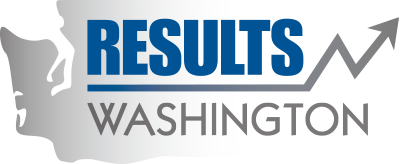Archived: Students who are enrolled in STEM (academic transfer and professional-technical programs) in public community and technical colleges
Washington could add as many as 110,000 new jobs in 2017 by closing the skill gap. Eighty percent of the 25,000 jobs open for at least three months are because there are not enough people skilled in high demand STEM and healthcare fields, according to a March 2013 Washington Roundtable report. We will be third in the nation in STEM jobs in 2018, according to a Georgetown University report. Employers need many levels of STEM education, including certificates, associate degrees, and bachelor's degrees.
Our STEM students can move seamlessly into four-year universities thanks to associate transfer degrees and agreements that allow their credits to transfer in particular majors. Thirty-five percent of the STEM bachelor-degree graduates at four-year schools in 2011 started off at our colleges. We offer math and science courses preparing lower division students to transfer successfully to upper division courses at four year institutions. We are using innovative approaches to prepare students for college-level math, the backbone of STEM professions, through initiatives with our K-12 partners and our efforts in redesigning pre-college math. This work is critical as roughly four out of every ten of our transfer students, who graduated with a STEM BA degree, started their college journey with a pre-college (i.e. developmental) math course.
- We now have thirty-one applied baccalaureate degrees in STEM fields.
- To help motivate students to achieve these new higher standards, Washington higher education institutions have created an agreement for the use of the high school (11th grade) assessments to place students into the appropriate math or English course. Additionally, we are implementing innovative placement approaches using high school transcripts; and accelerating movement through pre-college (i.e. developmental) math through reducing the number of course levels by redesigning the curriculum and instructional delivery. The Student Achievement Initiative, our performance-based funding system, tracks students’ progress from pre-college math into their first college-level math class. This allows us to analyze the success of our efforts.
- We are participating in the Washington MESA Community College Program, to get under-represented students additional help in math, engineering, and science so they can excel and transfer to four-year institutions.
- We continue to have strong partnerships with the four-year baccalaureates including Washington State University’s location at Everett Community College in which a number of STEM field programs will be offered.
- We are also working with our colleges around Guided Pathways that will improve student degree program selection for preparation in STEM fields and better align with workforce demands and four-year baccalaureate institution degree offerings.
- Our faculty actively participate in the Washington Council for Engineering and Related Technical Education, which includes representation from the two- and four-year sectors in STEM fields.
- Value the importance of math, science, and technology as early as elementary school.
- Encourage children/students to pursue STEM degrees, as well as having them take math and science courses all four years of high school.
- Pass your STEM skills along by mentoring students or making internships and apprenticeships available. Participate at the elementary school level to share your experiences about how great it is to work in STEM fields.
- Recognize that there are many well-paying STEM jobs that require various levels of education, including certificates, associate degrees, bachelor’s degrees and beyond. There are many avenues to a STEM career.
- Support public policies that grow STEM education, because the health of Washington’s economy is tied largely to STEM industries.
- Information about our system and our role in STEM in can be found on our website:
- Center on Education and the Workforce, Georgetown University, state-level tab analysis at: http://cew.georgetown.edu/stem/
